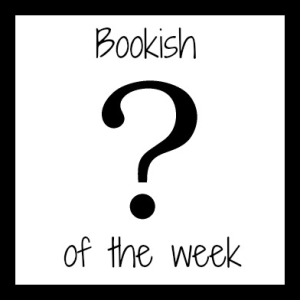 Thanks so much to those of you who shared some bookish questions following my post last week in the comments or by email ~ I really appreciate all your contributions. Readers, bloggers, and authors all jumped in so I’ve lots to choose from and I think we will have a lot of fun working our way through them over the coming months.
Thanks so much to those of you who shared some bookish questions following my post last week in the comments or by email ~ I really appreciate all your contributions. Readers, bloggers, and authors all jumped in so I’ve lots to choose from and I think we will have a lot of fun working our way through them over the coming months.
This week the focus is going to be on historical fiction, a genre that about ten years or so ago, I had minimal interest in and would only read a very few favourite authors. Despite having a great love of history, there wasn’t a lot of novels that were challenging in style, complexity, and era. It was also at a time when there wasn’t a great deal of interest in historical novels from publishers. Now, as many of you will attest to, the range of historical novels has grown exponentially and there are many excellent historical novels being published in many different time periods. More recent talented authors that immediately come to mind are Tamera Alexander, Laura Frantz, Tamara Leigh, Jody Hedlund, Cathy Gohlke, Susan May Warren, Sarah Sundin, Tracy Higley, Jamie Carie, Tracy Groot, and real newbies Lori Benton, Olivia Newport, and Joanne Bischof, to name a few. I love an in-depth historical novel, one that not only is gripping bust showcases the era, the people, and the historical events. In other words, ones that take an awful lot of research on the author’s part, on top of genuinely good storytelling.
That said, the question I’ve chosen for this week is one that was posed by a number of authors, who are obviously keen for feedback as they contemplate future stories! So, for your chance to contribute to that process, we’d love your response to the following question:
What time period and/or location do you most love to read for historical fiction?

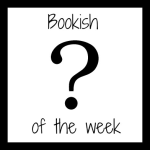
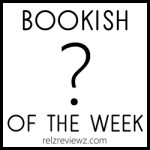
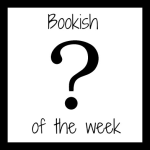
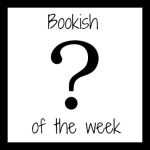
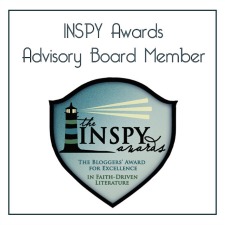




September 2, 2013 at 4:12 am
It’s kind of impossible for me to choose :), since I honestly love all things history. But I’ll say that if it’s about the American Civil War, WWII or ancient history, I’m 100% sold. Oh and British history…something about those Brits. Then there’s the Revolutionary War period…settling of the West….so I’m pretty sure that wasn’t helpful at all (haha!), but that’s me 🙂
September 2, 2013 at 10:52 am
Jamie Lapeyrolerie » You make me laugh – I think you just need to say you love anything prior to 1960 – ha! Ancient and medieval history are my favourites but I adore stories set in Europe – I studied a lot of European history in high school and at Uni, so I’m probably biased. Like prairie fiction, I’ve had enough of the Civil War era for the most part. I’ll still read favourite authors in those eras but would love to see more from other eras and countries. That said, apparently it doesn’t sell all that well if set outside the State…that makes me a little sad 🙁
September 3, 2013 at 11:30 pm
Nice! I worked on a M.A. in Civil War history, so I definitely understand the bias :). But I agree, I would love to read more European history. Like with Russian history – can I get something besides Leo Tolstoy? Try as I might, I have yet to love his writings. Although I’m going to give Anna Karenina a second chance.. we’ll see. I’m excited to read the new release set in Australia though!
Us Americas…we need to expand out horizons 😉
September 2, 2013 at 7:47 am
I have to agree with Jamie, it is really hard for me to choose an era. I love the Tudor period, Civil War, WW I and II. I really didn’t read much historical fiction until I read The Other Boleyn Girl, and from then on I haven’t been able to read enough. 🙂
September 2, 2013 at 10:48 am
Andi » Yep, the World Wars fascinate me, too. Love it when they are set in Europe rather than on the homefront, though. Love that you have discovered a genre you love after not reading much of it. Thanks for sharing.
September 2, 2013 at 8:05 am
So hard to choose!! I love stories set in the Colorado mountains because that’s where I’m from. My favorites are from the mid to late 1800’s when people are exploring and going on wagon trains!
September 2, 2013 at 10:46 am
Marissa » I’m glad you enjoy this genre, Marissa. I feel it has been done way too many times, though, and it takes a really unique talent to make it intriguing for me now. Have you read Lisa Bergren’s Breathe, Sing, and Claim? I think they would be right up your alley!
September 2, 2013 at 8:16 am
I have always loved historical fiction. And like the others, I will read any time period. But my very favorites are the dark and the middle ages of Europe. I love knights, castles and even the plague. 😉 Connie Willis’ time travel novel, The Doomsday Book is a favorite. So is Byzantium by Stephen Lawhead.
September 2, 2013 at 10:44 am
Beckie B. » LOL! The only person to love the plague – hehe! Have you read Tamara Leigh’s self published medieval books? Brilliant, just brilliant 🙂 Angela Hunt Heirs of Cahira series is fabulous as the four books cover a different century, including modern day in each! Medieval, 1600s, Civil War, etc.
September 2, 2013 at 8:25 am
My favourites are Victorian, Regency and Medieval. I haven’t really got into much past 1900. But historical is my favourite genre. 🙂
September 2, 2013 at 10:39 am
Amanda Deed » My favourite is medieval 🙂 And eras that don’t get much airplay, you know? I have a fascination with the World Wars so both those eras are good for me, too.
September 2, 2013 at 9:31 am
You know what I would love to read? Historical novels set in Russia during the imperialist age. Also, would be interested in reading a novel about Israel right after WWII when they finally had a homeland again. Aside from that I enjoy stories set in medieval times and also Regency.
September 2, 2013 at 10:37 am
Brittaney » Hey Brittaney – good choices! I love reading historical novels set internationally. There’s so few historical CF novels set in countries other than the US. Have you read Edward Rutherford’s Russka? Great novel. I think medieval novels are a real favourite of mine. Can’t remember if you have read Tamara Leigh or Linda Windsor’s medieval series – great writing. Thanks for sharing.
September 2, 2013 at 12:59 pm
I can recommend a couple of series for you, Brittaney. Judith Pella’s Russians series is fantastic! She began the series with Michael Phillips when they were writing together but finished the last four on her own. This series covers the last years of Imperial Russia, ending with the Revolution. You should also read Bodie Thoene’s first series, “The Zion Chronicles.” It is a five volume series dealing with Israel becoming a nation after WWII. Her “Zion Covenant” series was written second, but it actually happens in the early years of WWII and introduces many of the characters of the Chronicles series. These two series made the Thoenes best-selling authors.
September 2, 2013 at 11:55 am
That’s a hard one as I tend to read historical fiction set in all time periods. With me I read different authors based on what time period they write in. So I don’t read any one time period or pick books based on the time period. I pick them based on authors, because each of my favorite historical fiction authors write in different time periods. I don’t think any of the authors I read write in the same time period.
September 2, 2013 at 1:09 pm
Thanks for asking this question, Rel. I am happy to read such varied responses for locations and time periods. I hope some of the editors and publishers are reading this, too. So many seem to want Texas in the late 1800s. I know they sell well, but like many here, I enjoy varying periods and places in my historical fiction. I actually love colonial and Revolutionary America the best, along with the first frontier era of America. After that, I love the years between the War of 1812 and the Civil War in the American East. I also love the Gilded Age in New York City and Newport, Rhode Island, as well as that same era across the pond, as some say. I enjoy British Victorian settings (Lawana Blackwell has done some wonderful stories in this period) for traditional historical novels and historical mysteries, which I dearly love. Overall, I guess I am like others here in that my first love is a historical saga tracing one family through many periods of history.
September 2, 2013 at 1:53 pm
My all-time favorite Historical Fiction time period is WWII. Something about that time just makes for the best romance stories! So far my favorite WWII author is Sarah Sundin, her books are simply amazing. I’m always looking for more WWII stories so if anyone has any suggestions…! I also enjoy a wide range of other historical fiction!
September 3, 2013 at 1:52 am
I do have some suggestions for you, Abbi. I love Judith Pella and she did a four-volume WWII series called “Daughters of Fortune.” Check it out. Michael Phillips did a four-book series called “The Secret of the Rose” that spans the years right before WWII through the war and up to the 1990s. Tricia Goyer has written several books set in WWII. She did four standalone books for Moody Press and a standalone for Summerside. She also did a three-book series for Moody set during the Spanish Revolution in the years before WWII. Elyse Larson did a three-book WWII series called “Women of Valor.” Susan May Warren did some WWII stories for Summerside. Liz Tolsma is currently writing some for Thomas Nelson. Her first recently released, “Snow on the Tulips.” And Cara C. Putman writes mainly in that era. She did one for Summerside. She also wrote some for Heartsong Presents that have been collected in two volumes “Cornhusker Dreams” and “Ohio Brides.” She also has a WWII story coming from B&H next year. I hope you find some you like.
September 3, 2013 at 2:04 pm
Aaron McCarver » Good list, Aaron 🙂 A couple of Dan Walsh’s books are also around the WW2 era, I think. I loved Michael Phillips series – devoured them a VERY long time ago! Along with the Thoene’s Zion Chronicles and Zion Covenant – have read them so many times over 🙂 Thanks for sharing, Aaron.
September 2, 2013 at 4:06 pm
Rel, I would have to say from mid 1800s to mid 1940s.I was 9 and10 years when my brother, 3 brother-in-laws, cousins, and friends in WWII. I love the oregon trail stories and western and Indian books. I was born in the dust bowl days in OK. I would love to read a story based on that. My folks married in 1921 so love stories for that time. I’d say probably mid 1850s to mid 1900s. Maxiie
September 2, 2013 at 6:48 pm
After my trip to America and seeing some of the historical sites I have to say some of the novels really helped with the history (especially MaryLu Tyndall) I love the Civil War era, Revolutionary war and thanks to MaryLu the war of 1812. Post Civil War again loving MaryLu’s new series. I love the Colonial era in both America and Australia. love the Oregon trail era also and and the frontier. I am not a regency or english history fan unless its navel (like hornblower) On Texas I like the ones that deal with the early statehood like the Alamo etc. Not a fan of the upper classes. I do like the westerns.
Would love to read more set in Canada dealing with there history (love a Mountie)
September 2, 2013 at 9:50 pm
I’d really like to see more from World War 1. And have it with Australian settings and/or characters.
That being said after reading a lot of historical fiction over the years, I’ve been more interested in contemporary fiction of late.
September 2, 2013 at 11:32 pm
Thank you for posting this question, Rel. What a wonderful cross section of interests from readers! It leaves a wide field for writers to explore and set stories, and gets the brain to churning. I, too, tend to read authors that I love or historicals I’ve heard great things about, no matter the time period. That being said, I’m especially interested in reading and writing books set between the years just before the American Civil War and WWII–a broad 100 year range. Still, it takes little to tempt me to search for stories set before that! I’ve just read an amazing translated novel, “The Book of Abraham,” following a Jewish family from 70 A.D. through WWII and the ghetto in Warsaw. The overview of history was rewarding and many of the stories based on truth shocking and heartbreaking, but such a vast time period left me a little shell shocked. Reading the history of a people in novel form like that gave me new insights into history and cultures–something I treasure.
September 3, 2013 at 2:31 pm
Cathy Gohlke » Loved these comments, Cathy – I so agree with your last line about reading about real events and often real people in novel form is so intriguing…albeit often confronting and challenging, as you say.
As mentioned above, you are one of those authors that hits the right balance between your characters and setting – neither one overwhelming the other. Love that! Appreciate you taking the time to share your thoughts, Cathy – thanks.
September 2, 2013 at 11:48 pm
I like to read the time periods from the Civil War to the present age. I don’t much care for the Middle Ages.
Thanks!
Janet.
September 3, 2013 at 2:20 pm
Janet Estridge » Too many decaying teeth, Janet?! 😉 Thanks for sharing
September 3, 2013 at 12:41 am
Rel, Although all the authors you’ve named are great practitioners of the craft, I rarely, if ever, read historicals–too many other books in genres I enjoy more. One exception that I re-read lately is a book written by the late Robert B. Parker and published in the general market. It’s a fictionalization as seen through the eyes of a bodyguard hired to be with Jackie Robinson when he became the first black player in major league baseball. I almost forgot that it was taking place multiple decades ago, because I was so engrossed in the story (and, of course, baseball). I would suggest that is the way historical fiction should be judged–not by the period, but by the story. And you’ve listed some great storytellers.
September 3, 2013 at 2:19 pm
Richard Mabry » I think if the synopis had baseball in it, you’d read it no matter what, right?! Thanks for sharing – historical fiction isn’t for everyone, especially when often the bulk of the story is the romance angle which can on occasion overwhelm the setting so much as to make it irrelevant. Sounds like the book you read is a great one. One of my favourite general market books is Vengeance: Sword of Gideon by George Jonas, also based a true story, although some of its validity has been questioned. I read it well before the movie, Munich, came out. Found myself fascinated despite the gruesome nature of the book.
September 3, 2013 at 1:42 am
Thank you for the mention, Rel!
As a reader, I love to read a wide variety of eras! It’s like travel, and I never get tired of exploring something new. I do wish more eras – and settings – were represented in Christian fiction. There’s so much more to history than Texas in 1880. Of course I’m thrilled with the gradual expansion of the genre over the past decade and hope to see readers and authors and publishers bravely explore new eras and lands!!
September 3, 2013 at 2:07 pm
Sarah Sundin » “There’s so much more to history than Texas in 1880.” – spot on, Sarah! History is such a wonderful teacher and to limit it to the American prairie is so limiting. One of the reasons I love your books so much 🙂 Thanks for sharing – and yes, it has been great to see both era and genre expansion in the industry over the past 10 years or so.
September 3, 2013 at 5:10 am
I don’t have a favourite era. Historical fiction is one of the few genres I am reluctant to pick up, usually. However, there are a few authors that make whatever era they are writing about come alive. The two most noteworthy, for me, are Siri Mitchell and Tracy Higley.
September 3, 2013 at 2:02 pm
Tracy » I’m with you – Siri and Tracy are exceptionally talented writers…and oh, the research they must do!
September 3, 2013 at 9:11 am
Very good question. Hmmm… How do I phrase my answer?
I would think there are readers who pay much more attention to the setting of a book than I do. And lately, the books I seem to have an interest into are more contemporary than historical.
To answer your question, anything that is not related to war. Whether it’s World War I, WW2 (I’d say that one above the other war period :/ ) or any other war.. UNLESS I hear fantastic things from other readers about the story and/ or the synopsis for the story is just irresistible. But I know for sure that war periods are usually not my thing.
As a reader I’ve noticed that I zoom on the character development of a story before taking note of anything else. If the characters are very well drawn, well, I’m willing to stick to the story no matter the historical time period – or the time period, in general. But like I said, absolutely not a fan of war stories… Those are usually quite heavy. Doesn’t mean I’m not willing to try one, though, if and when I find something about it that appeals to me. Like an excellent romance. 😉
September 3, 2013 at 9:18 am
Great thoughts, Ganise! You know, I think overall, contemporaries are my favorite. I get that by choosing that genre over historical, readers may “miss” the pleasure of getting lost in a bygone era but so many historical novels get lost in the “details” that the characters suffer horribly. Do you find that, too? For example one book I read was focused on the behind-the-scenes working parts of its place (setting) and as a result, I didn’t feel like the characters shined. There is a balance and so far, it’s a rarity that I come across it which is perhaps why I gravitate more towards modern settings – there I can relate to so many of the issues or challenges that are inspired by the settings or story.
September 3, 2013 at 10:44 am
Now these were the words I was looking for. Yes, Rissi! Totally understand and agree. There are those who pay more attention to the setting than the character, so they read historical fiction, for example, just to learn more about a certain time period.
Not me!
I couldn’t have said it better. The characters definitely need to shine. And these words are my thoughts exactly : -> ‘ There is a balance and so far, it’s a rarity that I come across it which is perhaps why I gravitate more towards modern settings – there I can relate to so many of the issues or challenges that are inspired by the settings or story.’
Yes! I used to read way more historical fiction than I do now.. I’m slowly noticing that I tend to chose modern stories. They’re definitely more ‘ relatable’. But when a historical author manages to find the balance between characters and setting.. then, my interest in the genre is enhanced.
September 3, 2013 at 2:01 pm
Ganise » Oh, exactly what I was trying to say in response to Rissi – LOL!
September 4, 2013 at 2:26 am
I suppose when we do come across historical novels that finds the right balance, they’re that much more special. So there is an upside. It’s also probably why I talk up historical authors whenever I do find one whose writing I love because it’s more rare than not these days. 🙂
September 3, 2013 at 2:00 pm
Rissi » As a genre, contemporaries are my favourite, as well, but the well written historicals are terrific! The best historical writers have the balance right, between character development and historical detail. Details that are not overwhelming but add so much flavour and uniqueness to the story – and achieve it in a way that doesn’t make readers feel they are sitting in a history lecture! Not that I ever minded that as I loved history so much in school and Uni 🙂
September 4, 2013 at 2:28 am
AGREED! So true, Rel. I think I used to read more historical genres also – Janette Oke, Lori Wick and the like. Nowadays, I just don’t “feel” the brilliance in that genre though. Perhaps someday I will again. That being said, you are right. The best authors do have the right balance. 🙂
September 3, 2013 at 1:52 pm
Ganise » Thanks for sharing, Ganise – I so understand that you don’t enjoy stories set during the World Wars. They can be confronting and disturbing. I read them because of my fascination with history, the unbelievably sacrificial nature of so many of those who fought the war at the front and at home, and the lessons we can learn about human nature, both good and evil. Have you tried any of Sarah Sundin’s books? They are top notch and not too heavy, I don’t think – very character focused.
I’m with you on character development – connecting with characters is key for me, too. But I will be pulled out of the story if the time period details are incorrect (the ones I know!!) or don’t gel with the era. I like to learn historical details when I read those books – I don’t enjoy a story that is just plonked in a certain time period without much thought, you know?!
September 3, 2013 at 9:12 am
Whoa! This is a challenging question. 🙂
Depends on the author or book, I suppose but really I prefer the more “refined” time periods. For example, I adored Susan May Warren’s ‘Daughters of Fortune’ series. It was a gorgeous, thoughtful fairy-tale of a series that wasn’t afraid to be “sad” (which can incur anger or disappointment from readers perspectives) and much as I root for the happy ending, I admired that. Eras (speaking about books) I am not fond of are the 1700s – most the 1800s as well as any time periods prior to that, like Biblical fiction. Not sure why… perhaps because television shows like ‘Downton Abbey’ have vividly brought latter eras to life and as a result, I find it more visually appealing…? It’s a mystery.
That being said, I have found two authors who could probably set their novel in any era and I’d read it – Julianna Deering and Elizabeth Camden. Deering wrote a terrific story in ‘Rules of Murder,’ one that was fun and witty and full of great moments that screamed 1930’s authenticity. Camden on the other hand has a knack for making her characters somehow beautifully flawed and relatable, no matter their era plus she surprises the readers in some of the most poignant ways.
Other historical authors I’ve liked are Lisa Bergren (who has written a dynamic series in the ‘Grand Tour’ books) Elizabeth Ludwig and Julie Lessman.
As for settings… hm… the one that really never “clicks” with me is what I call “western” fiction or novels set in “rough” small-towns. I’m probably not describing this the best, however that’s all I can think of to say just now!
Great question, Rel!
September 3, 2013 at 1:57 pm
Rissi » A great response, as always, Rissi! I loved Susan May Warren’s series, too. She has, funnily enough, given Ganise’s response written two excellent novels set during the second world war – Nightingale (on the home front) and Sons of Thunder. I’m with you – I do love a happy ending but the books that deal with life honestly are extra special on many occasions, I think. I love an author’s courage in taking the road less travelled.
Agree with you on the other authors you mentioned.
September 4, 2013 at 2:38 am
Oddly enough, I haven’t read Susan’s “war” novels yet. I planned on it and never got around to it. I’ll have to do so soon as I think she is one of my favorite authors – particularly when she writes the historical genre.
Yes! Much as I am a self-professed happy ending girl, I respect authors who do write a realistic story full of life lessons – like Susan did in ‘Daughters of Fortune’ or like Amber just did with ‘Bleeding Heart.’ On the other hand, I think authors can get a bit too overwhelming when writing tragedy also – sometimes it’s a bit TOO unrealistic if they continue to kill off multiple characters or they put too much sorrow in the same person’s life. There’s only so much we or the character can take.
Thanks for the insightful thoughts/responses and posts, Rel – always enjoy the convos around here! 🙂
September 4, 2013 at 3:55 pm
Well! You sure don’t shy away from the tough questions, do you?! Normally I’d just go look at my bookshelves for the answer, but as my books are pretty well all boxed up by now…..guess I’ll have to use my brain then! 😉 I’d have to say it’s a tie for me. Between regency England (think Jane Austen and Julie Klassen) and Revolutionary or Civil War era (think Laura Frantz). Yes, I do realize that’s three. But I’d have to agree with Rissi and Ganise, I read more contemporary than I do historical. But give me a Julie Klassen or a Laura Frantz book and I am so there! With bells on! 😀